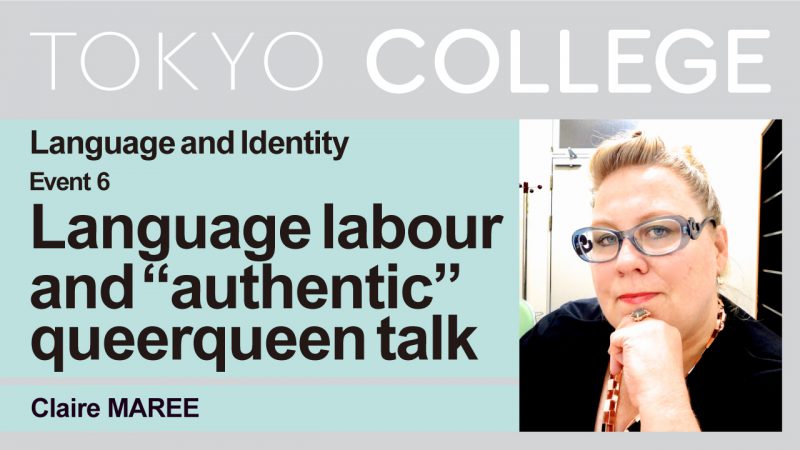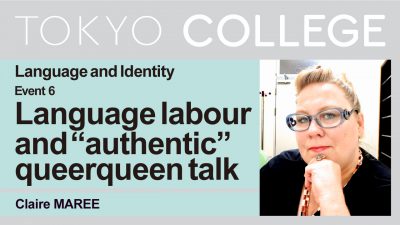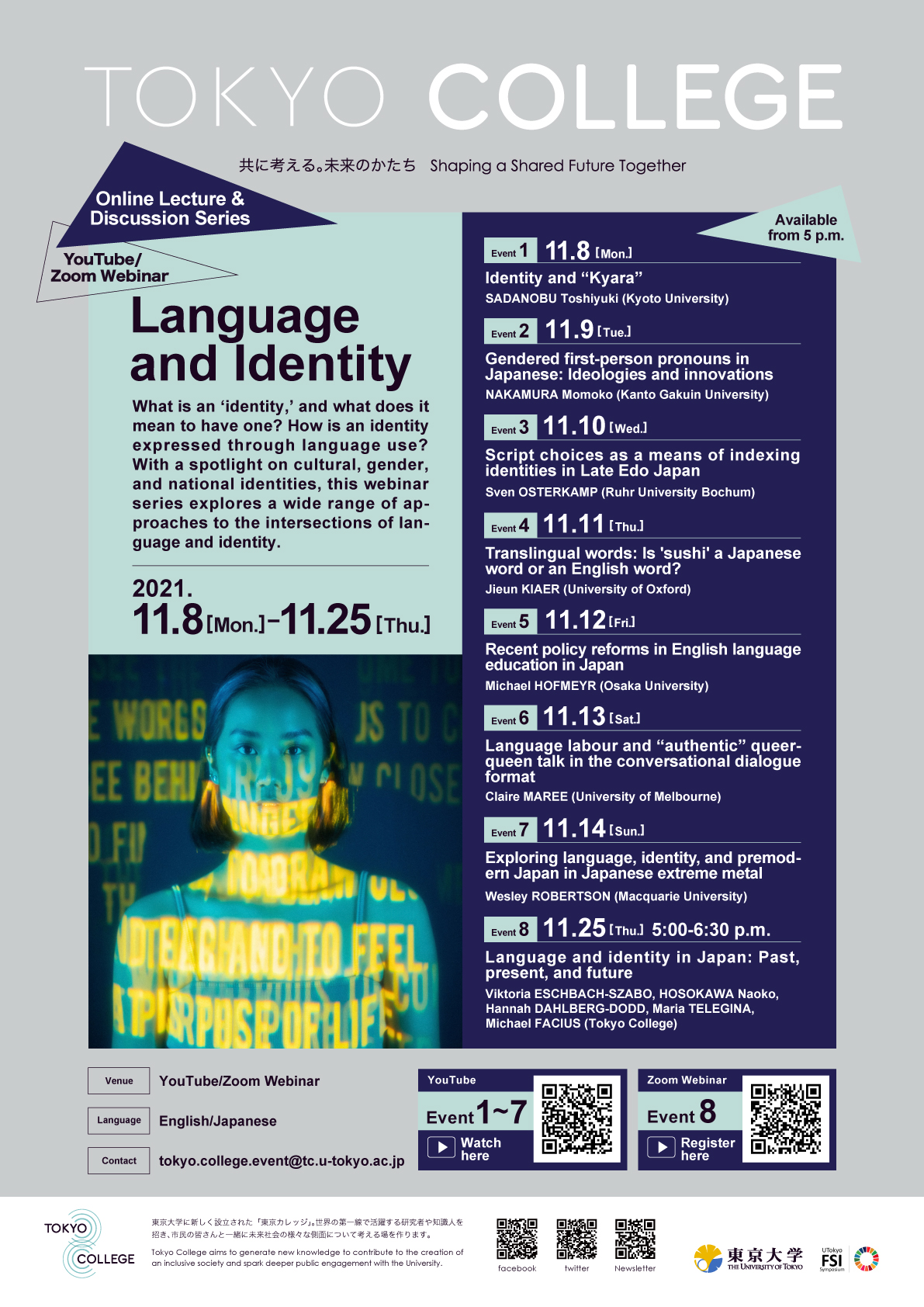Language and Identity Series Session 6: “Queer Excess: Language labour and re(creating) ‘authentic’ queerqueen talk in the taidan (conversational dialogue) format”

| Date(s) | Saturday, 13 November 2021 (available from 17:00 JST) |
|---|---|
| Venue | |
| Language | English (with Japanese simultaneous interpretation) |
| Abstract |
In a range of genres from conversational dialogue books to lifestyle television and animations, queerqueen styles are configured as crossing into popular media via the body of the authentically “queer male” whose “authentic” speech is produced spontaneously without scripting. Editorial interventions enacted through the collaborative language labour of stenographers and record makers, graphic designers and illustrators, and editorial teams (re)trace the sonic qualities of the queerqueen personality and (re)create queerqueen talk as that which is inherently excessive and in need of containment. Or, put in other words, speech and/or writing produced by queerqueen personalities is ventriloquilised and entextualised by transcribers, ghost writers, editors and/or producers through language-labour practices.
Drawing on her work in queerqueen: Linguistic Excess in Japanese Media (OxfordUP, 2020), in this presentation, Dr. Claire MAREE focuses specifically on five books published 1979-1980 by twin brothers Osugi (Sugiura Takaaki, cinema critic; 1945- ) and Peeco (Sugiura Katsuaki, fashion critic; 1945- ) that employ the taidan (conversational dialogue) format and incorporate illustrations from leading graphic artists. Through visual mimesis and orthographic stylisation the “excessive” nature of the talk is visually highlighted. Censorship tropes visually mark that which must be contained. Spoken interactions emergent in “actual” conversations are thus entextualised through process of language labour and function as precursor for later articulations of queerqueen booms. Analysis of the rendering of queerqueen styles into text reveals both the layers of labour involved in (re)creating authenticity through which metapragmatic stereotypes of gender, sexuality and desire that are essential to the business of mainstream entertainment are inscribed into contemporary media. |
| Program |
Speaker: Claire MAREE (Associate Professor & Reader, Asia Institute, University of Melbourne)
Commentator: Michael FACIUS (Associate Professor, Tokyo College)
Moderator: Hannah DAHLBERG-DODD (Project Researcher, Tokyo College) |
| Organized by | Tokyo College, The University of Tokyo |
| Contact | tokyo.college.event@tc.u-tokyo.ac.jp |

















